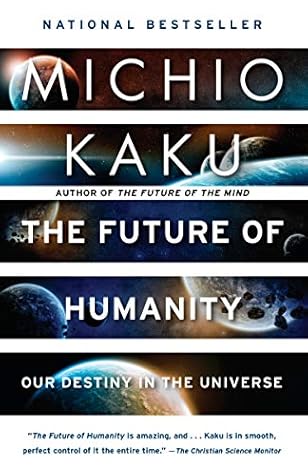More on this book
Community
Kindle Notes & Highlights
by
Michio Kaku
Read between
January 28 - January 30, 2021
One day about seventy-five thousand years ago, humanity almost died.
I was reminded of this in 1992, when I heard the astounding news that, for the first time, a planet orbiting a distant star had been found. With this discovery, astronomers could prove that planets existed beyond our solar system. This was a major paradigm shift in our understanding of the universe.
If we scan all the life-forms that have ever existed on the Earth, from microscopic bacteria to towering forests, lumbering dinosaurs, and enterprising humans, we find that more than 99.9 percent of them eventually became extinct. This means that extinction is the norm, that the odds are already stacked heavily against us. When we dig beneath our feet into the soil to unearth the fossil record, we see evidence of many ancient life-forms. Yet only the smallest handful survive today. Millions of species have appeared before us; they had their day in the sun, and then they withered and died. That
...more
If our long-term survival is at stake, we have a basic responsibility to our species to venture to other worlds. —CARL SAGAN
The dinosaurs became extinct because they didn’t have a space program. And if we become extinct because we don’t have a space program, it’ll serve us right. —LARRY NIVEN
fiction. I was stunned that Asimov, instead of writing about ray gun battles and space wars with aliens, asked a simple but profound question: Where will human civilization be fifty thousand years into the future? What is our ultimate destiny?
History reveals that scientific revolutions come in waves, often stimulated by advances in physics. In the nineteenth century, the first wave of science and technology was made possible by physicists who created the theory of mechanics and thermodynamics. This enabled engineers to produce the steam engine, leading to the locomotive and the industrial revolution. This profound shift in technology lifted civilization from the curse of ignorance, backbreaking labor, and poverty and took us into the machine age. In the twentieth century, the second wave was spearheaded by physicists who mastered
...more


